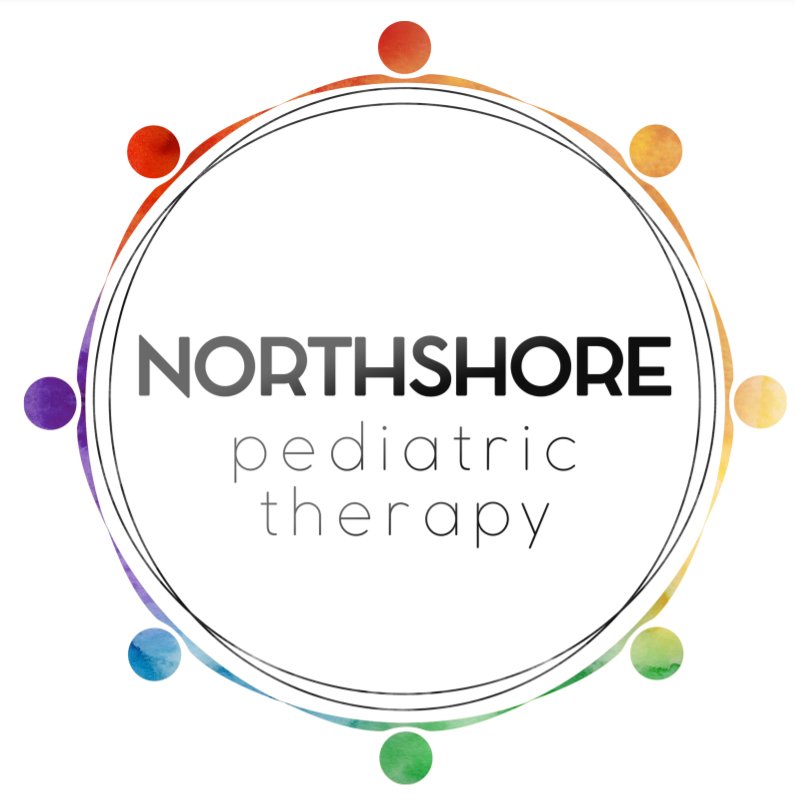“Occupations” aren’t just about jobs?! What is OT?
By Nicole Raisin, M.S., OTR/L
A pediatric occupational therapist will identify a child’s unique strengths and use them to provide support, build skills, and guide their family to boost success in everyday activities!
What is occupational therapy?
Occupational therapists (OTs) are healthcare providers that help people, of all ages, engage in meaningful activities that they want or need to do in their everyday lives. In pediatrics, an OT will work with the child and family to support engagement in the activities that are meaningful to them. OTs use play activities, specifically tailored modifications and supports, and family home programs to support a child’s success in daily activity participation.
For an OT, “occupations” are the meaningful activities that we want and need to do in our everyday lives, from brushing your teeth and getting dressed to eating meals with your family or going to school.
Everyone, of all ages, participates in occupations. An OT provides services that support engagement in these activities!
Occupations are those tasks and activities that help us in day-to-day life. Brushing your teeth, getting dressed in the morning, using the bathroom, socializing with friends, eating meals with our loved ones, going to school or work… they might seem like small beans at first, but having these skills can make a world of difference!
Occupational therapy is about more than handwriting. Just a few of the skills we could work on in OT include:
Self regulation, emotional or behavioral difficulties
Problem solving, attention, and organization
Hand- eye coordination
Handwriting or typing skills
Dressing skills like buttons, zippers, shoelaces
Bathing & toileting
Feeding and eating challenges
Sensory processing concerns
Accommodations and supports
Play and peer interaction skills
Self confidence, self advocacy
Activity persistence or perseverance
Flexible thinking skills
Does my child need occupational therapy?
Signs that your child may benefit from OT services might include:
Child appears clumsy or uncoordinated
Frequent emotional outbursts
Delayed fine motor or gross motor milestones
Difficulty playing with a variety of toys
Trouble with potty training
Sensitive to the physical touch, clothing, or messy play
Sensitive to loud or unexpected noises
Trouble sitting still or “always on the move” in a way that interferes with daily life
Difficulty “staying on task” and organized during a routine activity
Trouble playing and cooperating with peers
Difficulty with fine motor tasks, such as handwriting, buttoning, or shoe tying
Child is a picky eater and it is interfering with their ability to eat a varied, healthy diet
Diagnoses seen by OTs
Believe it or not, OTs work with a HUGE variety of people, diagnoses, and conditions. If you’re in need of support with the skills we’ve mentioned, an OT just might be the person you’re looking for! Some common diagnoses that OTs often see and provide support for are listed below, but please remember that every child’s needs are different, so check with your pediatrician or give us a call if you would like to know more.
autism
〰️
ADHD/ADD
〰️
sensory processing disorder
〰️
behavioral or mental health conditions
〰️
neurological conditions
〰️
dyslexia
〰️
genetic disorders
〰️
intellectual & developmental disabilities
〰️
developmental delays
〰️
traumatic brain injury
〰️
cerebral palsy
〰️
chronic pain or fatigue
〰️
autism 〰️ ADHD/ADD 〰️ sensory processing disorder 〰️ behavioral or mental health conditions 〰️ neurological conditions 〰️ dyslexia 〰️ genetic disorders 〰️ intellectual & developmental disabilities 〰️ developmental delays 〰️ traumatic brain injury 〰️ cerebral palsy 〰️ chronic pain or fatigue 〰️
In other words…
Occupational therapy can be a super valuable form of support across the life span. It’s important to find a provider who will focus on individual needs/wants, functional goals, proven methods, and meaningful progress. That’s why Northshore Pediatric Therapy has welcomed Nicole Raisin, MS, OTR/L to the clinical team! If you want to find out more about OT at Northshore, click the link below and we’ll get you in touch with Nicole!




